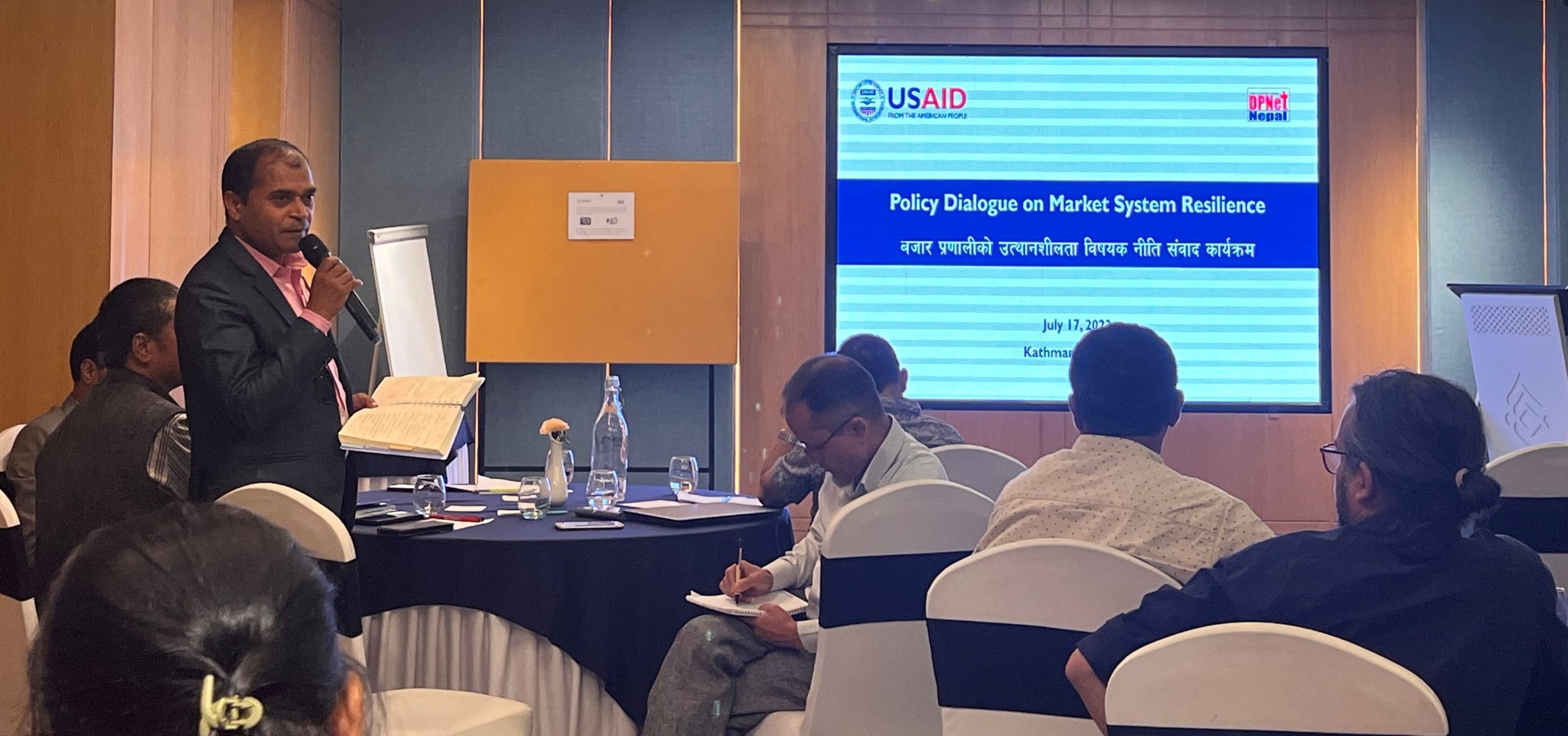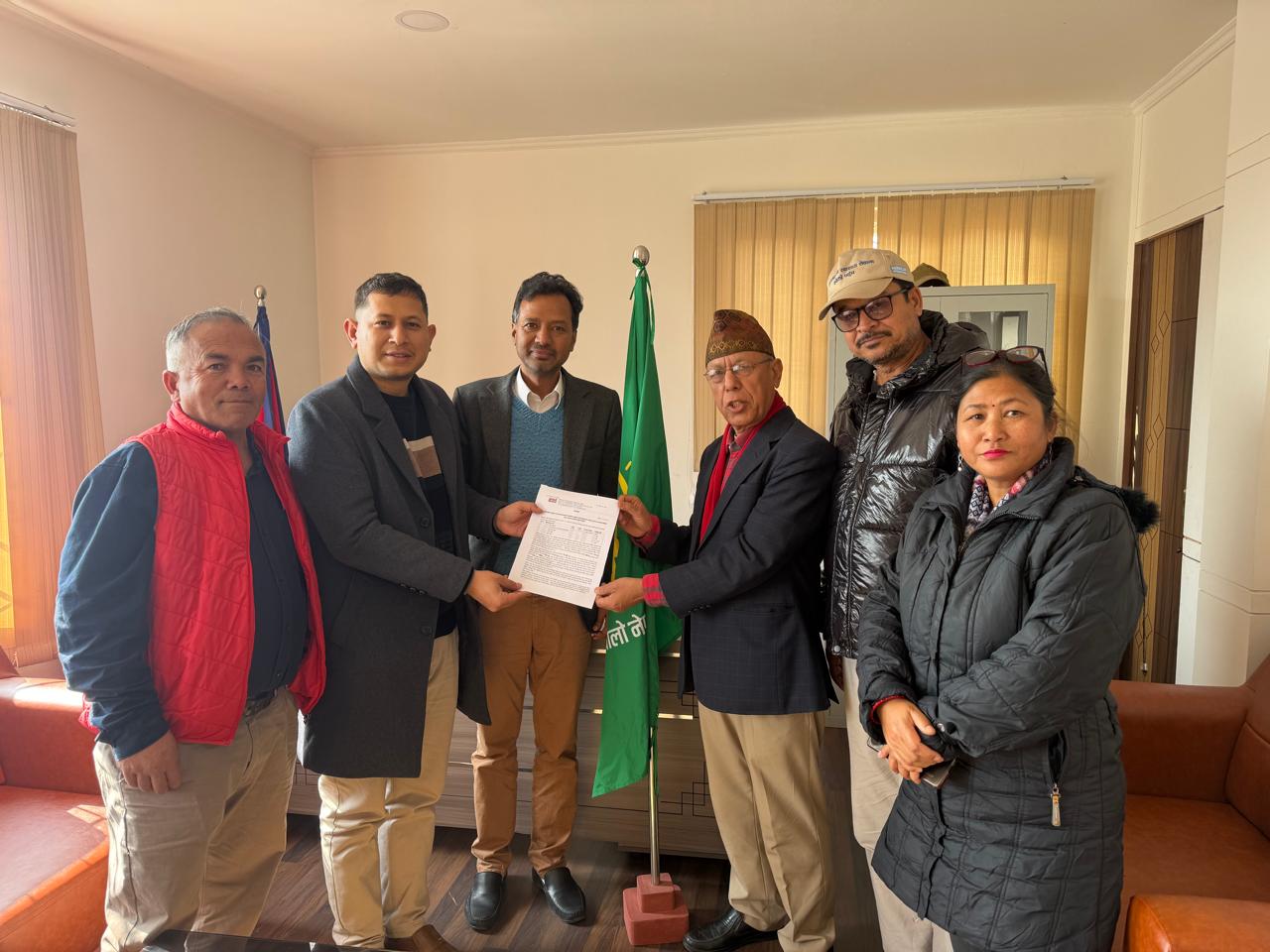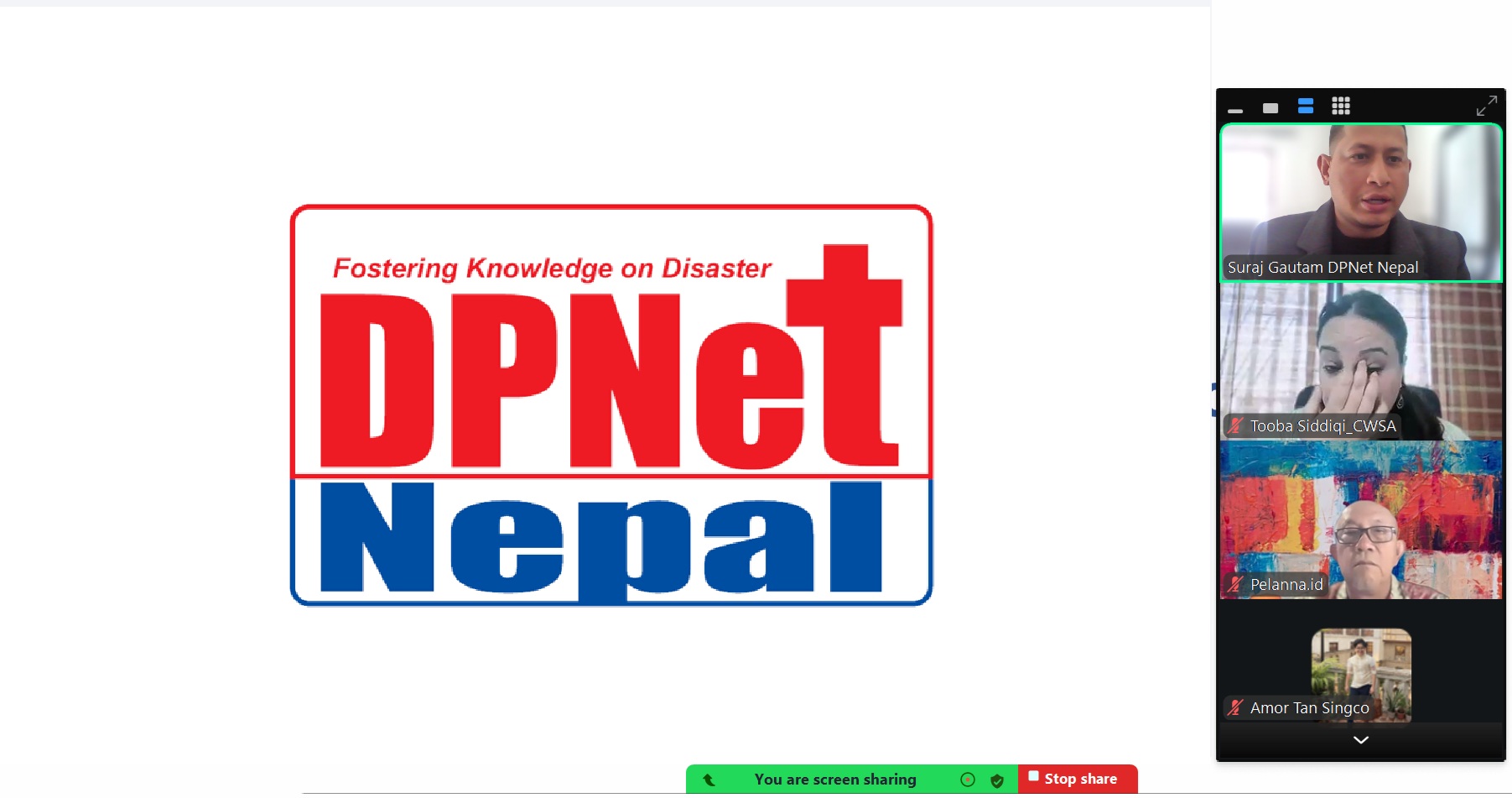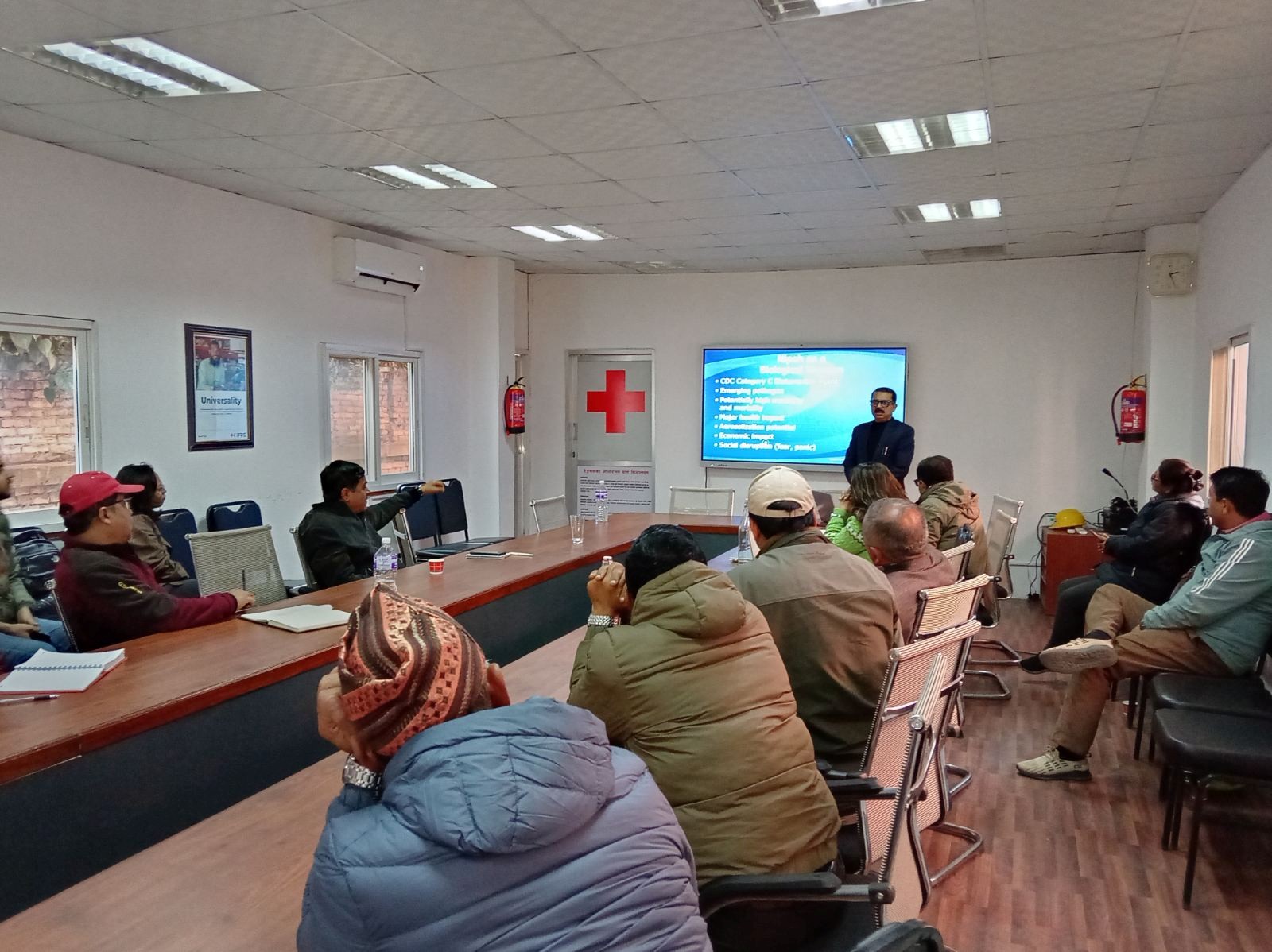Discussion Program on Market System Resilience

DPNet Nepal, in collaboration with USAID’s Tayar Nepal, conducted a Policy Dialogue for Market System Resilience on July 17, 2023. The event aimed to catalyze collaboration, coordination, and partnerships to improve the resilience of market systems in Nepal. The program witnessed representatives from the National Disaster Risk Reduction and Management Authority (NDRRMA), Ministry of Industry, Commerce and Supplies(MoICS), World Food Programme (WFP), Federation of Nepalese Chambers of Commerce and Industry (FNCCI), government agencies, development partner, private sector, DRR experts, security sector.
Dr. Raju Thapa, Acting Chair of DPNet-Nepal and Program Chair, highlighted the vital role of Market System Resilience (MSR) in Disaster Risk Reduction (DRR). He emphasized the integration of the Private Sector into DRRM efforts and outlined the key components of MSR: diversity, flexibility, and adaptability. Dr. Thapa supported his points with real-world examples, including the Bangladesh Flood and the growth of the e-commerce sector during the COVID-19 pandemic. He also discussed how energy crises can lead to energy diversification, strengthening overall market system resilience.
During the presentation session, Dr. Sridhar Thapa, WFP shared his presentation titled Market System Resilience: WFP he emphasized the comprehensive understanding of markets, encompassing physical establishments and online platforms. He stressed the significance of supply and consumer value chains, as well as market transparency, in ensuring stability. Dr. Thapa highlighted the vulnerability of market systems to various shocks and identified challenges faced by Nepal's market performance and resilience, such as issues with road networks, informal markets, data gaps, and government policies. He emphasized the importance of analyzing India's influence on Nepal's market power and conducting district-level market performance assessments.
Mr. Deepak Aryal, Mercy Corps Nepal presented on MSR from the perspectives of Disaster Risk Management and the interconnectedness of markets with social, cultural, and environmental contexts. He discussed the challenges faced in their practice, including limited risk fragility checks, low financial literacy, discrimination, limited outreach, and weak market linkages. Mr. Aryal presented case studies, highlighting the effectiveness of the nexus approach in integrating disaster risk reduction and market system development. He also mentioned successful interventions in the sugarcane and dairy production sectors.
Mr. Cecial Adhikari, Mercy Corps Nepal focused on a case-based intervention called BHAKARI, which aimed to address emergency food needs in vulnerable households along the Karnali River. During his presentation on Market System Resilience: Experience from Mercy Corps he highlighted the use of a cash transfer approach, short-term cash and voucher assessments, and longer-term resilience initiatives. The program involved partnerships with 150 merchants and employed market analysis tools to ensure sustainability and resilience.
Concluding the Presentation Session, Dr. Thapa, the Program Chair, briefly mentioned the government's efforts to strengthen the nexus between DRR and MSR, although he didn't provide specific details about their initiatives. He acknowledged the significant impact of crisis events on the market and emphasized the importance of identifying resilience in such situations. However, the specific methods for identifying resilience were not discussed.
Dr. Thapa highlighted the interconnectedness between community resilience, DRR, and MSR, emphasizing the vital role of community resilience in enhancing both DRR and MSR. However, no specific strategies or mechanisms for achieving this interlinkage were mentioned during the session. Dr. Thapa then opened the floor for further discussion, allowing participants to share their perspectives and insights on the topic.
Open Floor Discussion:
Mr. Pramod Lamichhane, FCAN highlighted payment issues affecting the supply chain and its impact on contractors, labor, and the market.
Mr. Rudra Adhikari, NRCS emphasized considering a DRR perspective, policy institutionalization, enhancing work capacity, and the importance of the Cash Working Group.
Mr. Bishnu Timilsina, DiMaNN/FPCRN stressed practical interventions, quality checks, effective monitoring, regulatory mechanisms, and market governance for consumer rights during emergencies.
Mr. Jagannath Kurmi, NPDRR-Disaster Affected Community highlighted negative impacts of product duplication and overpricing, emphasizing the need to address root issues for a stable market system.
Mr. Sridhar Khanal discussed the government's role in MSR and the importance of defining post-disaster goods delivery to strengthen resilience.
Mr. Dipak Pd. Dahal, FNCCI discussed challenges like mask shortages and sanitizer production issues, commending medicine quality checks, and expressing concerns about future shortages.
Mr. Murari Pokharel, NHRC underscored the importance of evaluating and monitoring policies for MSR. He emphasized the roles of humanitarian agencies and duty bearers, and the government's supervision in assessing capacity gaps. He emphasized the adopting a rights-based approach as crucial aspect for achieving resilient market systems.
Ms. Krishna Karkee, USAID's Tayar Nepal emphasized the importance of addressing policy gaps in the market system for enhanced MSR. She focused on the roles of consumers and sellers and emphasized the need for policy analysis and evaluation. By reviewing existing policies and implementing targeted interventions, the resilience of the market system can be improved, addressing specific challenges and ensuring better implementation and effectiveness.
Ms. Shanti Mahat, NDRRMA emphasized a strong market cycle, resilient production, and the development of government insurance policies for Market System Resilience.
Mr. Somnath Gautam, MoICS emphasized the significance of the market system in DRR, mainstreaming DRR principles, and collaboration between government and private entities for regulation.
Mr. Dambar Bahadur BK, Nepal Police highlighted the need for policy emphasis and prioritizing security in the supply chain to strengthen the market system's resilience.
In his concluding remarks Program Chair Dr. Thapa emphasized that the event proved to be sensitizing in MSR. It indicated the need for fostering collaboration among the private sector, government, and stakeholders. Furthermore, the program concluded with signing the commitment paper to work together in market system resilience.











